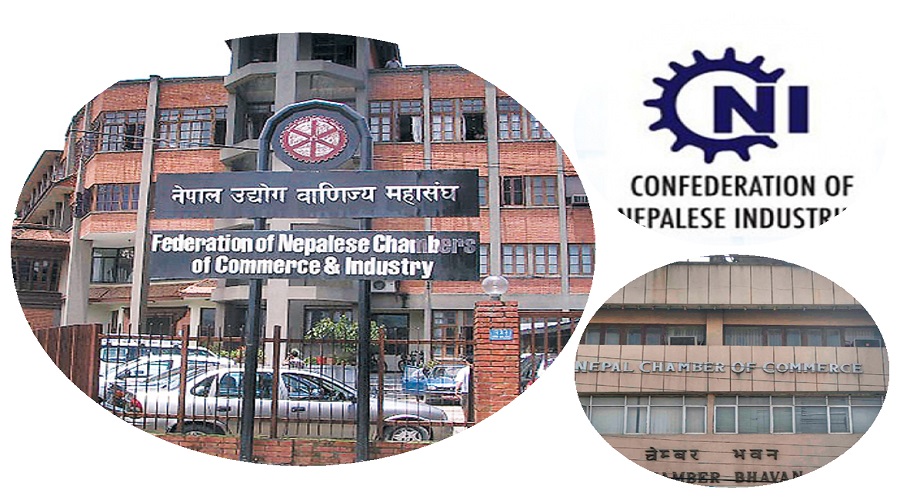KATHMANDU: Amidst a sluggish domestic economy, the private sector is urging the Nepal Rastra Bank (NRB) to implement a loose monetary policy to stimulate viability. The private sector believes that relaxing the monetary policy is crucial to accelerate economic growth and achieve the budget objectives for the upcoming fiscal year.
On Thursday, the Federation of Nepal Industry and Commerce, Confederation of Nepal Industry, and Chamber of Commerce jointly organized a program and presented their recommendations to Governor Mahaprasad Adhikari of Rashtra Bank. Previously, these three private sector organizations had submitted separate suggestions regarding the monetary policy.
While external indicators of the economy remain strong, the internal economy has weakened, leading to reduced private sector morale, declining overall demand, and discouragement of investments.
The private sector asserts that a loose monetary policy is necessary to sustain the economy. However, the National Bank argues against implementing such a policy at the moment. The Rashtra Bank is reluctant to adopt a loose monetary policy due to the gradual phasing out of COVID-19 relief programs and recommendations from the International Monetary Fund (IMF) and donor agencies. Despite this, the private sector has high expectations for the monetary policy.
During the program, Governor Adhikari did not reveal the direction of the monetary policy. He acknowledged the suggestions put forth by the private sector, emphasizing that the monetary policy should not exceed the mandate of maintaining overall economic stability. “We take the demands of the private sector seriously,” he stated.
Chandra Prasad Dhakal, President of the Federation of Nepalese Industries and Commerce, believes that the monetary policy should be relaxed in the upcoming financial year to fulfill the budget goals.
Dhakal proposed eliminating the interest rate difference between term deposits and ordinary savings and reducing the base interest rate of banks and financial institutions to invigorate the economy.
Rajesh Kumar Agarwal, President of the Nepal Industry Confederation, urged the National Bank to introduce a monetary policy with a 2 percent flexibility in the target price increase limit.
Agarwal emphasized that to achieve the economic growth target of 6 percent, the monetary policy should focus on environmentally friendly and productive sectors while expanding credit access for the private sector. He stressed the need to increase overall market demand while ensuring the sector remains healthy.
The Nepali economy has been facing visible problems for over a year, with the country experiencing a recession. Consumer purchasing power has weakened, resulting in low market demand and a lack of business and industrial loan growth.
Entrepreneurs and businessmen have lost morale and enthusiasm for new investments. Existing industries and businesses are being forced to close. Agarwal highlighted the importance of introducing a policy through the monetary policy to restore hope in the economy by creating job opportunities.
The private sector’s recommendations for the monetary policy include modifying it to facilitate expanded investment in small, medium, and large industries, tourism infrastructure, and other priority sectors. They call for an increase in the target rate of credit expansion and a reduction in interest rates.
The private sector believes that achieving 6 percent economic growth requires extending credit of approximately 18 percent to the private sector, based on previous experience where 1 percent economic growth corresponded to a 3 percent credit expansion. They also suggest reducing mandatory cash ratios, bank rates, and policy rates to meet market needs.
Furthermore, the private sector demands arrangements for internal transfers of at least one lakh rupees and the ability to make cash payments from abroad through remittance companies via ID cards.
The discontinuation of internal remittances within the country through remittance companies has adversely affected low-income groups, students, informal sector workers, migrant workers, and people in remote areas who lack bank accounts or smartphones.
The private sector highlights the need to establish an environment that creates jobs while keeping price increases within the target limit.
To encourage the manufacturing industry, special interest rate concessions should be implemented, and the limit of 12 crores on share mortgage loans should be reviewed.
The private sector also suggests reducing the risk load from 150 percent to 100 percent and allowing family members of individuals returning from foreign employment to access subsidized loan facilities.
Additionally, they propose expanding the provision for private sector investment in projects promoted by the foreign employment savings certificate, which is currently limited to financial institutions.
Given that the targeted credit policy implemented by Nepal Rastra Bank has not yielded the expected results, the private sector calls for its modification to prioritize investment in all productive industries.
In light of increasing non-commercial assets held by banks and financial institutions, they recommend establishing and operating asset restructuring companies to address the need for restructuring.

